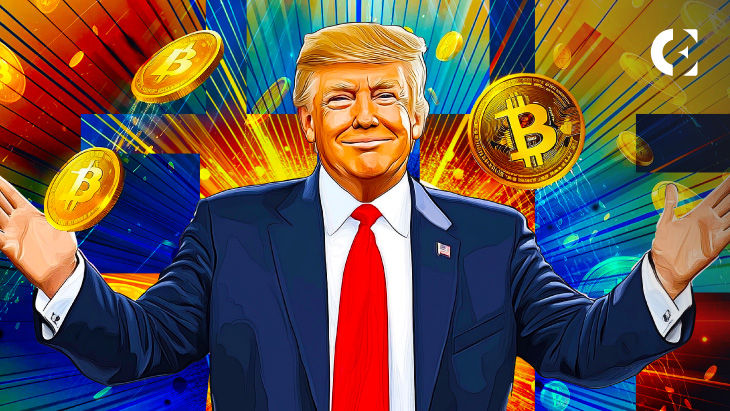- Trump’s proposal for a U.S. Bitcoin reserve could reshape global financial systems.
- Senator Lummis aims to secure 1 million Bitcoin to hedge against U.S. inflation.
- Bitcoin’s capped supply could drive scarcity, influencing global digital asset policies.
The idea of a U.S. strategic Bitcoin reserve has assumed greater significance following Donald Trump’s re-election. His campaign, particularly highlighted at the 2024 Bitcoin Conference in Nashville, proposed the idea of the U.S. government backing Bitcoin as a key strategic asset.
This initiative could establish the U.S. as a frontrunner in the global race for digital currency dominance. Trump’s administration aims to formalize U.S. involvement with Bitcoin, building on trends seen in asset seizures from criminal cases. However, his push for a national Bitcoin reserve could fundamentally change the digital asset landscape.
Legislative Moves to Formalize Bitcoin Reserves
Senator Cynthia Lummis, a leading Bitcoin advocate, has proposed legislation to acquire up to 1 million Bitcoin over five years. This plan reflects her belief that Bitcoin could act as a hedge against inflation while strengthening the U.S. economy.
If passed, the legislation would signify a major step in integrating cryptocurrency into federal fiscal policy. The proposal emerges as Bitcoin’s price has surged to record highs, fueling optimism among investors about a crypto-friendly approach under Trump’s leadership.
Geopolitical Impacts of a Bitcoin Reserve
A U.S. Bitcoin reserve could bring significant shifts in global financial systems. Bitcoin’s capped supply of 21 million coins, combined with a state-backed reserve, might increase scarcity and drive up prices. This scenario could prompt smaller investors to secure Bitcoin while it remains accessible.
Read also: Trump’s Crypto Agenda: Bitcoin Mining and SEC Overhaul Plans
Other nations observing U.S. policies may diversify their own reserves by adopting digital assets, positioning Bitcoin alongside gold and oil as a critical resource. This shift could redefine how countries perceive and utilize cryptocurrencies.
Challenges in Managing a Bitcoin Reserve
Despite its potential benefits, a Bitcoin reserve poses notable challenges. One major issue is the asset’s price volatility. Managing a large-scale reserve would also require robust solutions for cryptocurrency storage and security.
Additionally, Bitcoin’s decentralized nature may conflict with traditional financial systems reliant on central control. Resistance from skeptics questioning its stability and long-term viability could complicate efforts to integrate Bitcoin into the U.S. economy.
Disclaimer: The information presented in this article is for informational and educational purposes only. The article does not constitute financial advice or advice of any kind. Coin Edition is not responsible for any losses incurred as a result of the utilization of content, products, or services mentioned. Readers are advised to exercise caution before taking any action related to the company.







